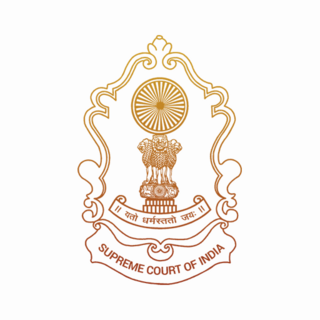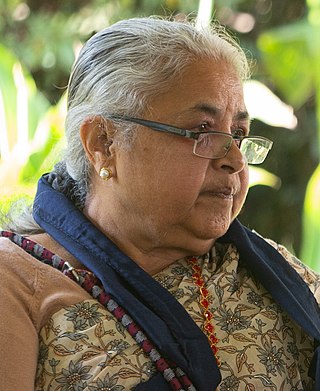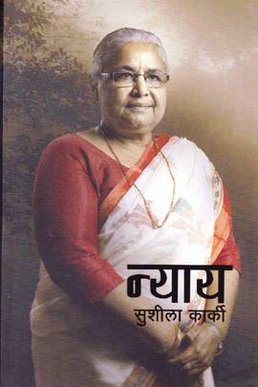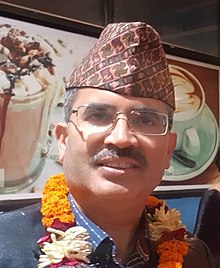
The chief justice of the United States is the chief judge of the Supreme Court of the United States and is the highest-ranking officer of the U.S. federal judiciary. Article II, Section 2, Clause 2 of the U.S. Constitution grants plenary power to the president of the United States to nominate, and, with the advice and consent of the United States Senate, appoint "Judges of the supreme Court", who serve until they die, resign, retire, or are impeached and convicted. The existence of a chief justice is only explicit in Article I, Section 3, Clause 6 which states that the chief justice shall preside over the impeachment trial of the president; this has occurred three times, for Andrew Johnson, Bill Clinton, and for Donald Trump’s first impeachment.
The chief justice is the presiding member of a supreme court in many countries with a justice system based on English common law, such as the High Court of Australia, the Supreme Court of Canada, the Supreme Court of Ghana, the Hong Kong Court of Final Appeal, the Supreme Court of India, the Supreme Court of Ireland, the Supreme Court of Japan, the Supreme Court of Nepal, the Supreme Court of New Zealand, the Supreme Court of Nigeria, the Supreme Court of Pakistan, the Supreme Court of the Philippines, the Supreme Court of Singapore, the Supreme Court of the United States, and provincial or state supreme courts/high courts.

The Chief Justice of India (CJI) (ISO: Bhārat kē Mukhya Nyāyādhīśa) is the chief judge of the Supreme Court of India and the highest-ranking officer of the Indian judiciary. The Constitution of India grants power to the President of India to appoint, as recommended by the outgoing chief justice in consultation with other judges, (as envisaged in Article 124 (2) of the Constitution) the next Chief Justice, who will serve until they reach the age of 65 or are removed by the constitutional process of impeachment.
Puisne judge and puisne justice are terms for an ordinary judge or a judge of lesser rank of a particular court. The term comes from a combination of the two French words, puis, "since, later" + né, and "born", which have been combined as French: puisné or puîné; meaning "junior".
The High Court of Delhi is the high court in Delhi, India. It was established on 31 October 1966, through the Delhi High Court Act, 1966. Below it are 11 Subordinate Courts that oversee smaller judicial districts. The court gets its powers from Chapter V in Part VI of the Constitution of India.

The Uttarakhand High Court is the High Court of the state of Uttarakhand in India. The Uttarakhand High Court was established on 9 November 2000 after the separation of the state of Uttarakhand from Uttar Pradesh.

The Supreme Court of Nepal is the highest court in Nepal. It is designated as the court of record by the Constitution of Nepal. It has appellate jurisdiction over decisions of the seven High Courts and extraordinary original jurisdiction. The court consists of twenty judges and a Chief Justice.

The British Columbia Court of Appeal (BCCA) is the highest appellate court in the province of British Columbia, Canada. It was established in 1910 following the 1907 Court of Appeal Act.
The following are lists of justices of several national Supreme Courts:
The chief justice of the Democratic Socialist Republic of Sri Lanka is the head of the judiciary of Sri Lanka and the Supreme Court of Sri Lanka. Established in 1801, the chief justice is one of ten Supreme Court justices; the other nine are the puisne justices of the Supreme Court of Sri Lanka. The post was created in 1801. The chief justice is nominated by the Constitutional Council, and appointed by the president. The first chief justice was Codrington Edmund Carrington. The current acting chief justice is Murdu Nirupa Fernando.

The chief justice of Nepal is the head of the judicial branch of Nepal and the chief judge of the Supreme Court of Nepal. The chief justice is the highest judicial officer in the country, and acts as a chief administrative officer for all the judicial system. It is the fourth highest rank on the Order of precedence in Nepal.

Nepal Law Campus, originally called Nepal Law College, is the oldest college under the Faculty of Law of Tribhuvan University - the oldest and largest university of Nepal. Nepal Law Campus was established in 1954 by three professors of Tri-Chandra College under the leadership of Prof. Ram Raj Pant, who also served as its founding Principal. Two others instrumental in the establishment were Prof. Ratna Bahadur Bista and Prof. Ashutosh Ganguli. Initially, the College operated under the affiliation of Patna University of India. Before shifting to its present location at Exhibition Road in Kathmandu, the College operated as evening school at Durbar High School in Rani Pokhari, Kathmandu.
The following lists events that happened during 2012 in Nepal.

Sushila Karki is a Nepalese jurist. She is the former Chief Justice of the Supreme Court of Nepal and the only woman to have held the post. Karki became Chief Justice on 11 July 2016. The Constitutional Council headed by the Prime Minister KP Oli recommended her for the post.

The Department of Law, University of Calcutta, Kolkata, West Bengal, formerly University College of Law, is a faculty in the University of Calcutta, founded in 1909, colloquially referred to as Hazra Law College, which offers undergraduate, postgraduate, doctorate and post doctorate courses. The Faculty oversees fifteen affiliated Law schools of the University.
Cholendra Shumsher Jung Bahadur Rana is a former chief justice of Nepal. He is the 29th Chief Justice of the Supreme Court of Nepal. He has been appointed by President on the recommendation of Constitutional Council of Nepal and oathed by Bidhya Devi Bhandari, President of Nepal on 2 January 2019.

Nyaya is a 2018 autobiography by Sushila Karki. It was published on September 28, 2018, by Book Hill Publications. Karki is the first female Chief Justice of Nepal. It is the first book by this author. She wrote the book after the end of her term on the bench.










